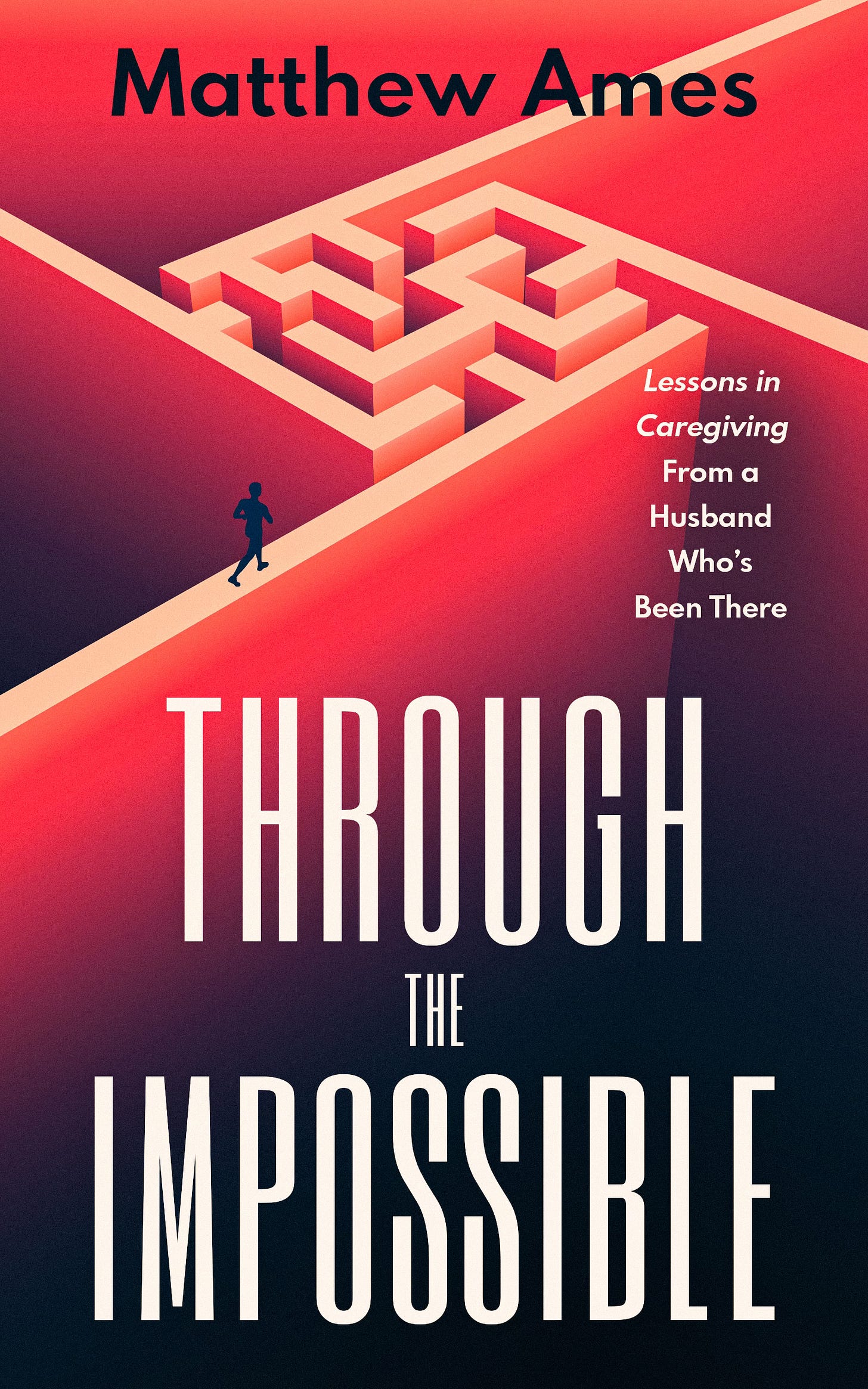Adverbs are treasure maps
Storytelling stuff worth sharing
So my tip last week about checklists caught the eye of Ibis Books author (and Georgia Super Lawyer!) Matt Ames.
Here’s what he messaged me…
This is great advice. Liz [Matt’s wife] is big on lists also and often stresses about the fact that they never stop expanding. Sometimes I’ll remind her, “Darlin’, the day we’ve scratched everything off is probably they day we’re taking our last breaths.” Gotta appreciate the journey.
Good advice layered on top of good advice!
And yes, before you ask, I got Matt’s permission to quote him. Last thing I need is a Super Lawyer tracking me down.
Storytelling tip o’ the week
I mentioned a couple weeks back how I took a memoir writing class with the wonderful Julie Metz.
Julie implored us to join in her never-ending war on adverbs.
I share a similar sentiment with my students: “The road to hell is paved with adverbs!”
Adverbs are the worst. Those icky “-ly” words? Gross.
My 7th grade English teacher, Mr. Rooker (and I will ever and always proclaim him the best dang middle school English teacher in the history of middle school English teachers), drilled us on adverbs.
When? Where? How? To what extent?
He had a similar mantra for adjectives.
What kind? Which one? How many?
He also turned helping verbs into an auctioneering contest. Here’s the list:
BE: is, am, are, was, were, be, being, been
MAY: may, might, must
HAVE: have, has, had
DO: do, does, did
CAN: can, could, will, would, shall, should
He put us through time trials. How fast could we say all 23 helping verbs?
I got to the point I could rip off that list in 3 seconds flat. Maybe not with the best elocution, but oh yeah. I’ll never forget helping verbs.
But back to adverbs.
A writer’s relationship with adverbs is adversarial. They make your writing sound lazy and cliché-riddled.
Julie offered two situations where adverbs are welcome.
1. If the adverb elicits SURPRISE. That is, the adverb modifies its target verb in an unexpected way.
For example, you would expect something like this:
The cat quietly stalked its prey.
“Quietly” does nothing for you there. It’s redundant. It’s obvious. Cats are almost always quiet. The act of stalking is almost always quiet.
But check this out:
The cat clumsily stalked its prey.
See? The adverb surprises. It delights. It disrupts expection and cliché. It reveals something specific about this particular cat and its ineptitude at stalking.
Even so, don’t overdo it. You’ll start calling attention to the fact you’re calling attention.
2. Julie also noted that adverbs are fine in dialogue if the character speaks that way.
“Yeah,” said the newsletter writer. “I totally get that.”
But here’s how my thinking has changed. I’m not ready to embrace adverbs, but I’m ready to be grateful for them.
See, adverbs are treasure maps. Here’s what I mean…
When you write your first draft, don’t worry about adverbs.
When you go back to edit and shape your second draft, highlight or underline or circle every nasty -ly word you find.
Then go back and dig for treasure. Because that adverb is a clue. It’s telling you—HEY! You haven’t found the right action verb yet!
Imagine in your first draft you wrote, “He walked slowly.”
UGH. “Slowly” may very well be my least favorite adverb. Slowly is a trap. We think it makes things somehow dramatic. But slowly doesn’t make things more dramatic. Slowly just makes things… well… slow.
And in storytelling, slow almost always equals boring.
So, in your first draft you wrote, “He walked slowly.”
You’ve gone back and circled every adverb. You start draft two. You come upon this awful sentence.
Do not despair. Grab your shovel and start digging. Because “slowly” is the red X on your treasure map.
Ask yourself… what’s an action verb that means “walk slowly”?
Lo and behold, you pull up your treasure chest, crack the rusted lock, lift the worn, wooden lid, and are blinded by the riches at your disposal. Which to use? WHICH TO USE??
He minced?
He shuffled?
He tip-toed?
He crept?
He ambled?
Every single one of those action verbs is more effective and intriguing—and reveals more particularities about your character—than “walked slowly.”
So. Sacrifice the adverb to a better verb.
Thank that adverb as you delete it into nothingness.
It showed you where you still had work to do.
More Super Lawyering
I began this newsletter with Matt Ames.
You may recall he wrote THROUGH THE IMPOSSIBLE: Lessons in Caregiving From a Husband Who’s Been There.
His powerful book continues to bring healing, guidance, and hope to readers going through the difficult transition into caregiving.
Check out this article—THE CAREGIVERS—published by the Winship Cancer Institute at Emory University. You’ll need to scroll down through a few other stories, but then you’ll come to Matt and Liz. You can read more about their story, see some great pics, even watch a video interview with Liz.
And here’s an interview-feature with Matt from RoughDraft Atlanta. This one even includes his Spotify Caregiver Playlist! And y’all know how much I love my playlists.
If you haven’t checked out his book yet, I cannot recommend it highly enough.
I liked it so much, I published it!
The Page&Stage Podcast
Coming next Monday!
In this episode of the Page&Stage Podcast, host Jason Cannon dives into the creative journeys of Diana de Avila, a digital artist who discovered her passion after a traumatic brain injury, and her collaborator Wilma Davidson, a communication consultant. The duo met at Sarasota Pen Women, a prestigious organization supporting female artists, writers, and composers. Together, they discuss their unique paths, the history of the Pen Women, and the upcoming Art and Found event. Listeners are invited to explore how creativity can emerge in unexpected ways and the power of artistic collaboration.
Thanks as always for reading, and have a great weekend!
Jason “Road to Hell” Cannon




